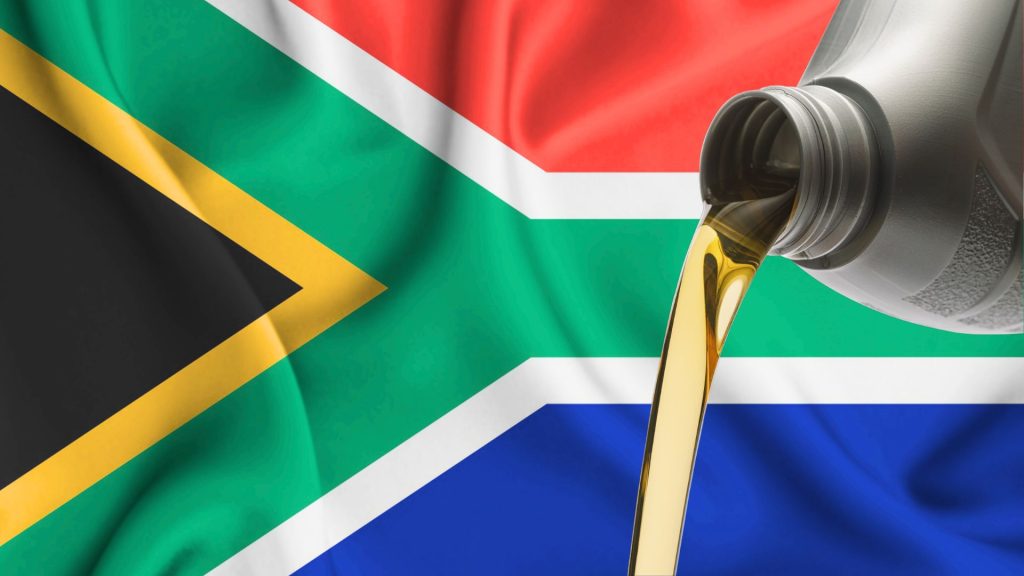Africa’s oil wealth has been a subject of global interest, drawing the attention of investors, energy professionals, policymakers, researchers, and anyone keen on understanding the dynamics of this critical sector. This article will discuss Africa’s oil-rich countries, their significance in the global energy landscape, and the economic opportunities and challenges they face.
African Countries with Significant Oil Reserves and Production Levels
Africa stands as a prominent contributor to the global energy landscape, with several countries holding substantial oil reserves and playing a vital role in meeting global energy demands. Among these nations, Nigeria, Angola, and Algeria emerge as noteworthy examples, each contributing significantly to the continent’s oil production. Here are some information about these three nations, according to Carnegie Endowment for International Peace, 2023:
1. Nigeria: Often referred to as the “Giant of Africa,” Nigeria holds the distinction of being the continent’s largest oil producer. The sheer scale of its oil reserves and daily production, which hovers around 2.5 million barrels per day, makes it a key player in the global energy market. Nigeria’s oil production is primarily concentrated in two regions: the Niger Delta and offshore fields. These regions serve as the primary hubs for extraction and contribute substantially to the country’s economic prosperity.
2. Angola: Angola is another standout in the African oil landscape, boasting a daily oil production exceeding 1.5 million barrels. The country’s oil industry has experienced significant growth, attracting foreign investment and contributing to Angola’s economic development. Over the years, Angola has been able to harness its oil wealth to boost its economy and provide its citizens with new opportunities for growth.
3. Algeria: Algeria’s oil production has been consistently high, positioning it as a major contributor to the region’s energy sector. While it may not match Nigeria’s production levels, Algeria remains a key player in the African oil arena. The revenue generated from oil exports plays a vital role in Algeria’s economic stability.
These countries have managed to leverage their oil wealth effectively, providing a foundation for positive economic impacts. Nevertheless, they encounter various challenges, including political instability, inadequate infrastructure, and environmental concerns, notably oil spills. These challenges highlight the need for responsible management of their oil resources to ensure long-term sustainability and prosperity.
Foreign Investments, Partnerships, and Trade Relationships in Africa’s Oil Sector
The role of foreign investments, partnerships, and trade relationships is paramount in the development and sustainability of Africa’s oil sector. This aspect involves a complex web of interactions that shape not only the economies of African nations but also the global energy market. Let’s discuss these elements more deeply:
1. Foreign Investments and Partnerships: International energy companies play a pivotal role in Africa’s oil industry. Collaborations with African nations provide access to valuable oil reserves and the necessary expertise to extract and export oil. These partnerships create a win-win situation: African countries benefit from foreign investments, technology transfer, and increased production capacity, while international energy companies secure a share in Africa’s resource-rich market. Notably, companies like TotalEnergies and ExxonMobil have established significant operations in Africa, contributing to the continent’s economic growth.
2. International Trade Relationships: African oil-rich nations are integral players in the global energy trade. They export their oil to various regions, including Asia, Europe, and the Americas. These trade relationships are essential for several reasons. First, they help diversify the destinations for African oil, reducing dependency on a single market. Second, they contribute to the global energy market’s stability and supply. Third, the revenue generated from oil exports bolsters the economies of African nations, funding infrastructure development, social programs, and more. This trade ensures economic stability in African countries and fosters interdependence among nations in a globalized world.
Foreign investments, partnerships, and international trade relationships are the lifeblood of Africa’s oil sector. They not only drive economic growth and development within the continent but also have far-reaching implications for the global energy landscape, ensuring a reliable and stable supply of oil to meet the world’s energy demands.
Energy Policies, Regulatory Frameworks, and Sustainability Initiatives in Africa’s Oil Sector
The prudent management of Africa’s oil wealth hinges on robust energy policies, well-defined regulatory frameworks, and a steadfast commitment to sustainability. This trifecta of elements is fundamental in ensuring that the oil industry serves as a catalyst for socio-economic development while safeguarding the environment. Here’s an in-depth expansion on these critical aspects:
1. Energy Policies: Effective energy policies are the bedrock upon which responsible oil production and utilization rest. African nations recognize that clear and comprehensive policies are essential to harness the benefits of oil wealth. These policies encompass a wide array of aspects, including exploration, production, taxation, and revenue allocation. They also address issues like environmental protection, local content development, and the promotion of renewable energy sources. For instance, Nigeria has initiated policies to address oil spills in the environmentally sensitive Niger Delta region, emphasizing the need for responsible extraction and cleanup.
2. Regulatory Frameworks: Complementing energy policies, regulatory frameworks provide the legal and institutional structures that govern the oil sector. They ensure that all stakeholders, from governments to oil companies, adhere to the rules and standards set by the state. Regulatory bodies oversee activities such as environmental impact assessments, drilling permits, and safety regulations. These frameworks aim to prevent malpractices and ensure that oil operations do not harm local communities or ecosystems.
3. Sustainability Initiatives: Sustainability is increasingly at the forefront of Africa’s oil agenda. Nations are cognizant of the finite nature of oil resources and the imperative to use them judiciously. Initiatives like the African Energy Commission and the African Petroleum Producers’ Organization (APPO) are steps in the right direction. These organizations aim to unify African nations in their approach to oil resource management. They emphasize transparency, equitable revenue distribution, and long-term sustainability. APPO, for instance, seeks to coordinate the efforts of oil-producing countries in Africa to optimize the benefits of their resources while protecting the environment.
In sum, energy policies, regulatory frameworks, and sustainability initiatives constitute the pillars of responsible oil management in Africa. Their effective implementation ensures that the oil sector acts as a catalyst for economic development and environmental preservation, guaranteeing a brighter and more sustainable future for the continent.
Africa’s oil-rich countries hold significant potential in the global energy landscape. They are pivotal in meeting global energy demands and contributing to their own economic development. However, they face challenges, such as political instability and environmental concerns, which need to be effectively addressed.
Foreign investments and trade relationships play a crucial role in the development of Africa’s oil sector, creating opportunities for international energy companies and boosting the economies of African nations.
Sustainable energy policies and regulatory frameworks are vital in ensuring responsible oil production and long-term sustainability. As Africa continues to navigate these opportunities and challenges, the impact of its oil wealth will be felt worldwide. As these nations continue to navigate these complexities, they remain essential players in the world’s quest for energy security and sustainability. For more information on investments, partnerships, and trade relationships in African oil-rich nations, please visit Hi-Fella.com, your platform for connecting buyers to sellers.








